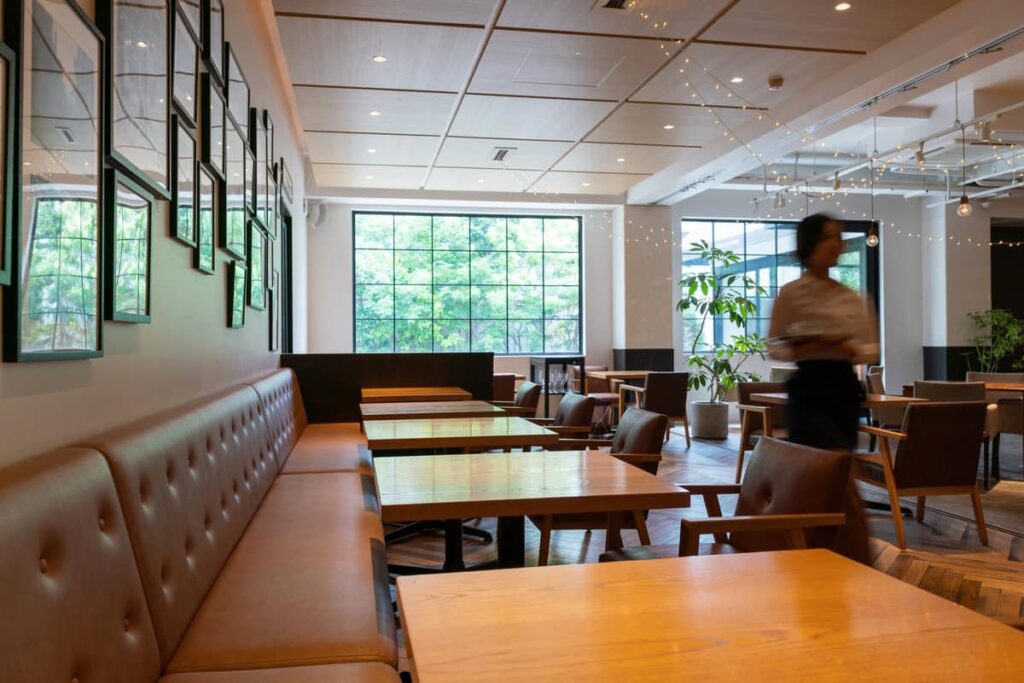[ad_1]
A Japanese traveling popup cafe aiming to employ and advocate for people with speech impediments is making its first stop in the Tohoku region on April 2nd in Sendai’s Tsutsujigaoka district. Read on to learn more about the Chū Cafe and its mission.
A Cafe with a Mission

Picture: Table-K / PIXTA(ピクスタ)
The Chū Cafe – in full Chūmon ni Jikan ga Kakaru Cafe (A Cafe Where Orders Take Some Time; official English name: Slow Order Cafe) – is the brainchild of Okumura Arisa. Living with dysphemia herself, her childhood dream was to work in a cafe. She wrote a letter to her future self, asking if her dream had come true yet, and left it in a drawer in her parents’ home.
Many years later, when Okumura returned to her parents’ home as an adult, she rediscovered the letter. Okumura also lived outside Japan for a time, in Australia, which she calls the world’s second biggest coffee culture. While living in Melbourne, she worked as cafe staff alongside people with other disabilities and illnesses. The environment of mutual respect, which fostered confidence, inspired Okumura.
Okumura first crowdfunded the Chū Cafe in August 2021. The pursuit of her childhood dream, and the cause of disability advocacy, both motivated her. People wishing to offer the project their continuing support can send their contributions via the Japanese crowdfunding platform Campfire.
Visiting at and ordering from the Chū Cafe is free of charge. However, reservations must be made ahead online. The staff, who are people of high school age and older, all have various types of speech impediments themselves. They offer entering patrons a brief explanation accompanied by an informational graphic. This graphic presents brief advice in order to educate and prompt reflection, understanding, and better awareness.
The project’s homepage offers the same advice to all would-be patrons, in 4 straightforward, common-sense points:
- Let us finish speaking.
- Don’t offer unsolicited advice.
- Don’t imitate us.
- Treat us like you would anybody else.
Waiting longer is perhaps not what many would think to do, especially in a world where coffee is supposed to come fast. But patience, and a safe and enjoyable environment, can foster understanding. It bears noting that despite its Japanese name, per the cafe’s Twitter presence, its English name is fittingly “Slow Order Cafe.” As a headline on Chū Cafe’s homepage aptly puts it: “Sometimes time stops. Don’t worry about it.”
A First Step in the Tohoku Region
While some of Sendai’s most famous and beloved historic denizens, including Date Masamune and Sendai Shirō, were visibly or audibly disabled, modern acceptance and accommodation lags. This is where efforts like the Chū Cafe can make the beginnings of broader change.
Chū Cafe’s appearance in Sendai is its first in the Tohoku region. It is set for 2 April. Bistari Tsutsujigaoka, a small restaurant a short distance east of Sendai Station and across the street from local landmark Tsutsujigaoka Park, is the host venue.
In its work nationwide, the project has made a point of hiring local people who live with this disability, and Sendai is no exception. One of them, 19-year-old Suguru Konon, led the planning for the Sendai event. Kahoku Shinpō, Sendai’s newspaper of record, quoted her as saying “I want to tell others [like me] in the Tohoku region ‘you are not alone.’” She also said “Although people with speech impediments are 1 in 100, they still tend to be isolated. I’d like to offer them this safe space in which they can talk to customers with peace of mind.”

Kahoku Shinpō coverage of Chū Cafe’s upcoming Sendai visit, posted by the cafe’s Twitter account. (Source)
This is Suguru’s second time taking part in a Chū Cafe popup as staff, having first heard about it while she was still in high school. Ridiculed by classmates for her disability, for awhile she tried to avoid attention. She remembers participation in a choir, starting in elementary school, as “one of the few places where I felt ‘normal.’” Today, Suguru still performs, both on vocals and with guitar.
Working with Okumura has brought Suguru more than simply the chance to work in the cafe and interact with its patrons. She appears in video content introducing the project, and has contributed her musical talents to it as well. “Music helped me find new confidence,” Suguru said.
Conclusion
While the Chū Cafe is only in Sendai for a day, its schedule and its work nationwide continues. Per its homepage, it will be visiting many other cities across Japan, especially in the Kantō and Kansai regions. Later in April, it moves to Kashihara, in Nara Prefecture, and in June, it will visit Kagawa Prefecture.
We encourage you to visit the project homepage and learn more about this unique approach to disability advocacy by providing a safe space to build awareness and understanding.
What to read next
Who’s “Disabled”? Doctor’s Letter Moves Many in Japan
Sources
[ad_2]
Source link


